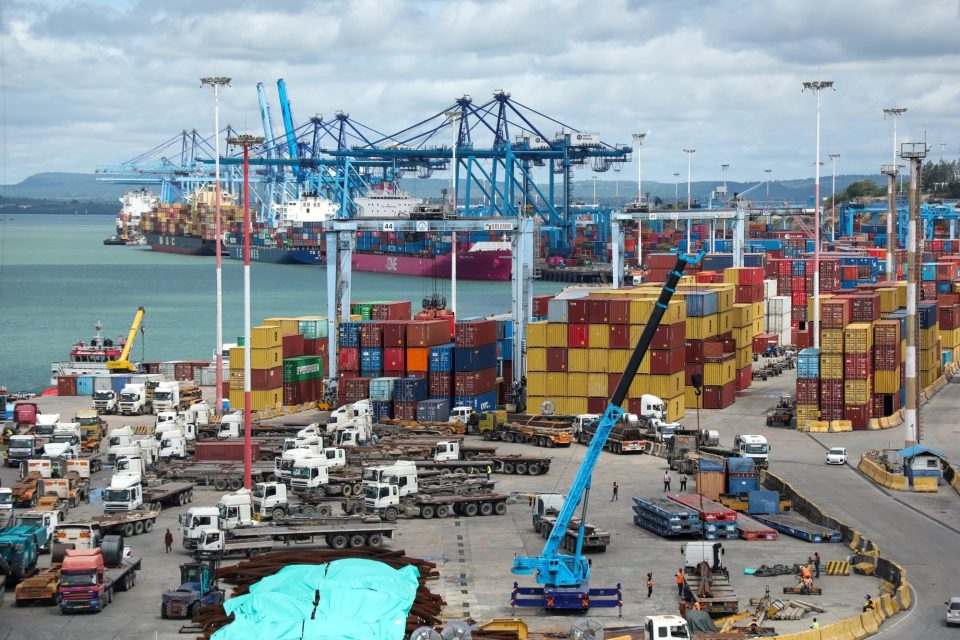May 23, 2025 – An explosive trove of documents and insider testimonies has blown the lid off what appears to be a well-orchestrated web of procurement fraud at the Kenya Ports Authority (KPA).
The revelations, touching on one of the country’s most important revenue-generating installations headquartered at the Coast, point to a pattern of inflated contracts, shadow tenders and deliberate bypassing of procurement laws that has cost Kenyan taxpayers’ money down the drain.
Rigged System Serves Elite
At the heart of the scandal are deals brokered behind closed doors and tenders awarded in secrecy plus a system rigged to serve only the extremely well-connected individuals.
Shockingly, even the very institutions that should safeguard public funds, including internal auditors and regulators, all appear to have deliberately looked the other way.
KPA stands tall in the region operating at the Port of Mombasa, which is regarded the region’s busiest port handling containers to the rest of East and Central Africa and landlocked countries such as Uganda, Rwanda, South Sudan and the Democratic Republic of Congo.
Systematic Fraud Exposed
The Standard’s investigations unit has pored through tons of documents revealing shocking patterns of inflated, irregular and questionable dealings at the state body.
Despite an ongoing investigation by the Ethics and Anti-Corruption Commission (EACC), KPA proceeded to award the tender to Jiangsu Rainbow Industrial Equipment Co. Ltd. three days after receiving an official request from the anti-corruption body.
The award was worth over Sh2.7 billion, placing the Chinese firm way ahead of what experts had warned was the inflated bid by the same company.
Inflated Contracts and Phantom Approvals
A sobering analysis by experts have confirmed that Jiangsu Rainbow is neither a known manufacturer of RTGs nor has it any record of prior experience.
Evidence suggests the Chinese firm was unable to provide the documents required for the tender under the provisions of Section 79 of the Public Procurement and Asset Disposal Act, 2015.
Key findings include:
- Single-sourcing violations: Companies were handpicked without competitive bidding despite active investigations
- Budget irregularities: Projects worth billions appeared in neither the procurement plan nor approved budgets for fiscal years 2023/24 and 2024/25
- Massive cost inflation: A 0.9-kilometer road awarded to M/s Stecol Corporation at Sh8.344 billion against an engineer’s estimate of Sh1.7 billion
- Questionable payments: KPA allegedly made advance payments of over Sh1.6 billion (20%) per contract via Standard Chartered Bank, with no significant work visible
The RTG Cranes Scandal
In a particularly damning case, KPA proposed to award Berth 13B and sought approval from Treasury in February 2022 to vary the Kipevu Oil Terminal (KOT) contract within the maximum allowable limit.
The letter was seeking approval to vary the Kipevu Oil Terminal (KOT) contract to include internally generated resources to complete the project.
However, the project was budgeted as a mega project with an estimated cost of USD 127,368,372, funded by government and internally generated resources. The authority noted that the revised total cost was USD 108,805,688, to be funded by internally generated resources.
Procurement Violations
The tender documents show systematic violations:
- Restriction of bidding to three pre-approved firms (Kalmar, Mitsui, ZPMC)
- Award to non-qualified Jiangsu Rainbow despite not meeting manufacturer requirements
- Allegations of forged documentation and fraudulent approvals
- Direct procurement bypassing competitive bidding processes
Equipment Maintenance Scandal
Separate investigations reveal inflated maintenance contracts:
- Hydraulic repairs: Previously costing Sh300,000-Sh400,000 now billed at Sh1.8 million per radiator
- Phantom parts: Orders for non-existent components and inflated spare parts costs
- Outsourced expertise: KPA’s own engineers bypassed in favor of expensive external contractors
Institutional Failures
The scandal exposes systematic institutional failures:
- Use of handwritten internal memos to approve multi-billion projects
- Violation of Public Procurement and Asset Disposal Act (PPADA) requirements
- Circumvention of Public Finance Management Act provisions
- Alleged complicity by oversight bodies including internal audit
KPA’s Response
KPA Managing Director Captain William Ruto dismissed the allegations in a text message to The Standard, stating: “You can visit our offices as everything has been done above board with all necessary approvals.”
However, KPA failed to respond to specific queries about the Jiangsu Rainbow contract award and other procurement irregularities.
Economic Impact
The Port of Mombasa serves as a critical gateway for East and Central Africa. Equipment failures and procurement delays have led to:
- Reduced operational efficiency
- Increased cargo handling costs
- Regional supply chain disruptions
- Lost revenue for landlocked countries
Experts estimate potential losses could exceed Sh15 billion if current procurement practices continue unchecked.
Calls for Accountability
The revelations have prompted calls for:
- Immediate EACC investigation acceleration
- Parliamentary oversight hearings
- Forensic audit of all KPA contracts since 2022
- Recovery of misappropriated funds
- Criminal prosecution of implicated officials
The KPA scandal represents a brazen example of state capture, where public institutions serve private interests at tremendous cost to taxpayers. As investigations continue, the focus must shift from damage assessment to accountability and recovery of stolen public resources.
There's no story that cannot be told. We cover the stories that others don't want to be told, we bring you all the news you need. If you have tips, exposes or any story you need to be told bluntly and all queries write to us [email protected] also find us on Telegram

